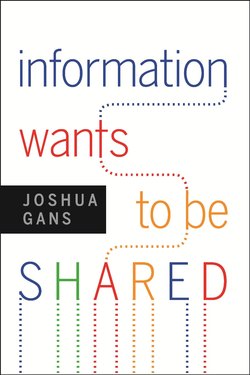Читать книгу Information Wants to Be Shared - Joshua Gans - Страница 12
На сайте Литреса книга снята с продажи.
Paying for the Medium, Not the Message
ОглавлениеPaul Graham, a founder of the venture capital and start-up shop Y Combinator, wrote, “Consumers never really were paying for content, and publishers weren’t really selling it either. If the content was what they were selling, why has the price of books or music or movies always depended mostly on the format? Why didn’t better content cost more?” [9] Graham goes on to note, “Almost every form of publishing has been organized as if the medium was what they were selling, and the content was irrelevant. Book publishers, for example, set prices based on the cost of producing and distributing books . . . Economically, the print media are in the business of marking up paper.” [10] From this point of view, the problems of print publishing arise out of the reduction in the demand for paper.
More broadly, each bit of information distributed relies on a medium. Information providers repackage information and present it in different forms that appeal to different people. Economists use the term versioning to refer to the practice of offering to sell goods in different forms (e.g., flights sold with big seats and those sold with cramped seats). Considered in this light, the medium is as important as the message. Indeed, the two are perfect complements. Charging for the information itself or charging for the means by which it reaches consumers, or both, is just like charging for delivering a physical good to your doorstep: the payment involves both the good and the delivery.
This leads naturally to a possible conclusion that not only does information want to be free but that “information is free”; it’s the delivery you pay for. Traditional booksellers are competing with electronic booksellers to sell books. And, for the most part, what they are competing on is the form of delivery and the way the books are packaged. Each of these is competing with completely free versions supplied by libraries or friends and spouses who don’t take too long to read. Even then, if you consider the books you download on a Kindle as “not free,” consider that the cost of the book may, in fact, just be accounting for a low-priced Kindle.
The point here is that publishers and other content providers can benefit from envisaging what their business models would look like if they considered themselves in the delivery business rather than the information business. In other words, if information were actually free, how would they provide value to consumers that consumers would pay for?
